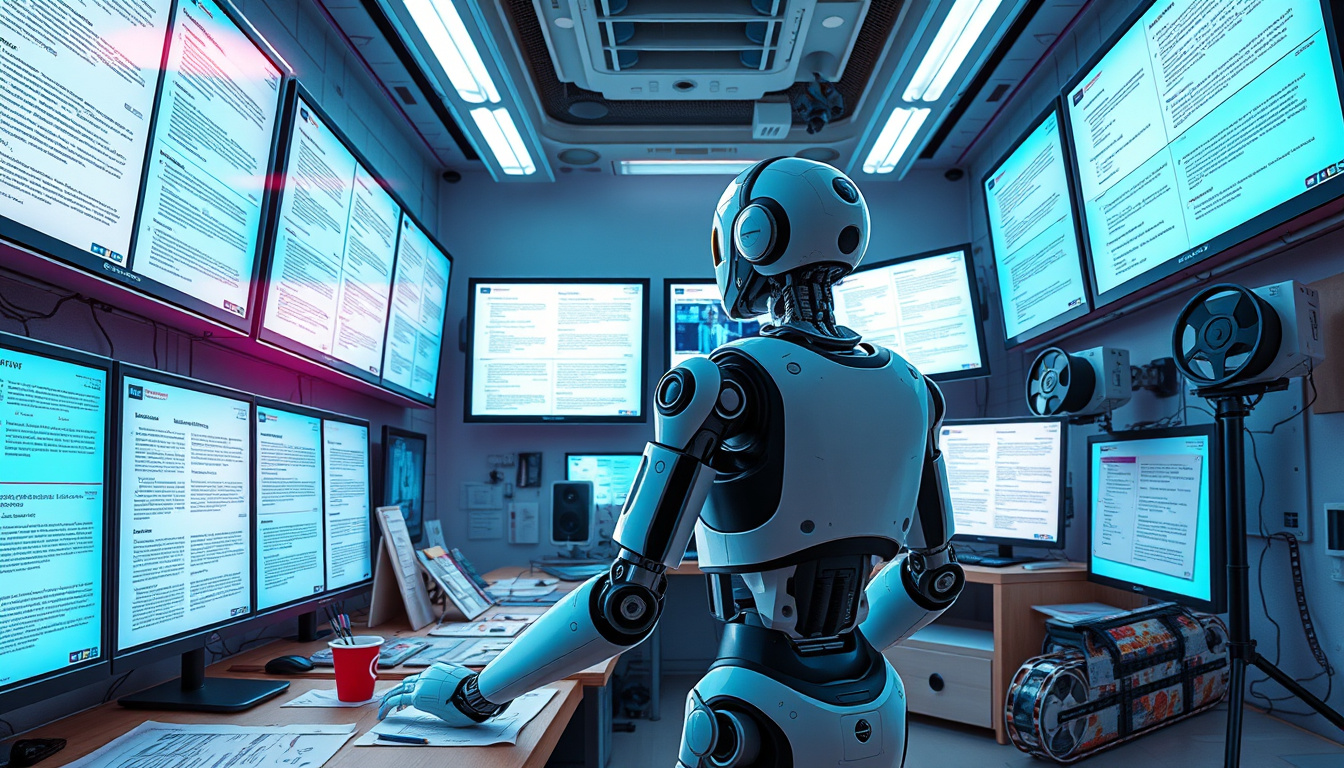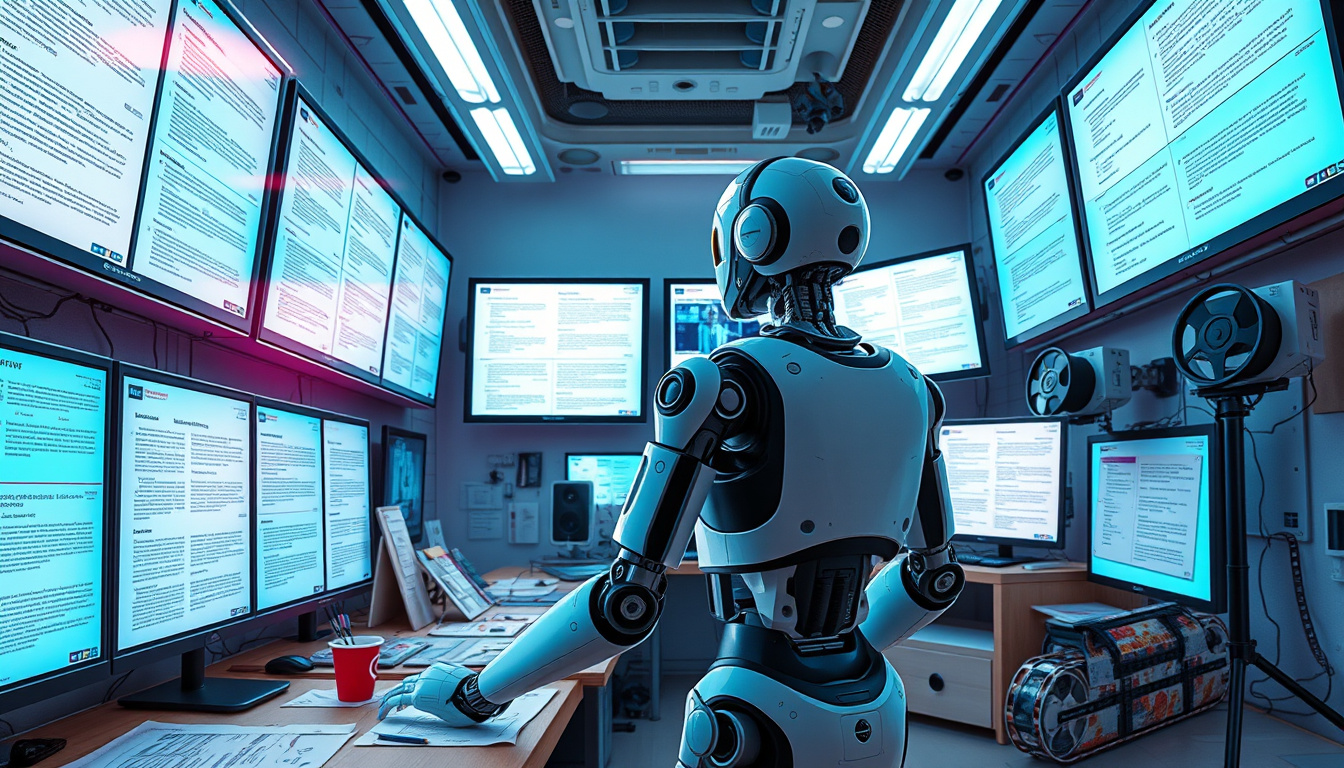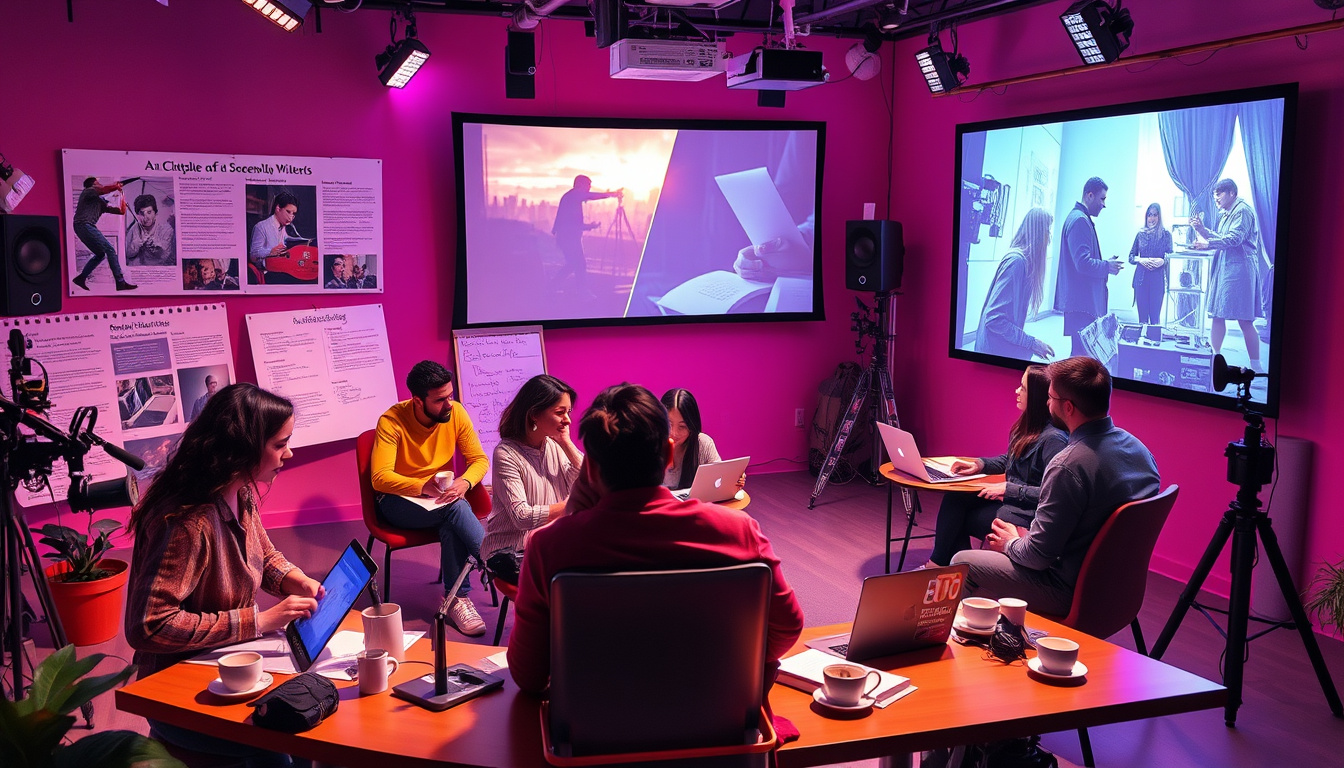
In a world where technology shapes every aspect of our lives, the realm of screenplay development is no exception.
Enter AI co-writing, a groundbreaking approach that is redefining how scripts are crafted, refined, and brought to life.
This innovative method not only enhances creativity but also streamlines the writing process, making it easier for writers to express their visions in compelling ways.
In this article, we will explore how AI co-writing is revolutionizing screenplay development, examining its benefits, successful case studies, potential challenges, and the future of collaboration between artificial intelligence and human creativity.
Get Professional Screenplay Coverage in Minutes, Not Weeks!

Key Takeaways
- AI co-writing is transforming the screenplay development process by enhancing creativity.
- Successful case studies showcase how AI tools can generate innovative screenplay ideas.
- While AI offers numerous advantages, challenges and limitations still exist in its application.
- Future trends indicate a growing collaboration between AI technologies and human writers.
- Embracing AI as a creative partner can lead to more diverse and engaging storytelling.
Introduction to AI Co-Writing in Screenplay Development
In recent years, AI co-writing screenplay has emerged as an innovative tool that is transforming the landscape of film and television writing.
With advancements in artificial intelligence, writers now have the opportunity to collaborate with sophisticated algorithms that can offer fresh ideas, generate dialogue, and suggest plot developments.
This integration of technology not only speeds up the screenplay development process but also allows writers to explore new creative avenues that may not have been previously considered.
As the entertainment industry increasingly embraces AI tools, understanding how to effectively harness this technology could be a game changer for both aspiring and seasoned screenwriters.
In essence, AI co-writing screenplay is not just about efficiency; it’s about enhanced creativity and inspiration.
The Role of AI in Enhancing Creativity
In recent years, the landscape of creative writing has been dramatically transformed by technological advancements, particularly through the role of AI in enhancing creativity.
The rise of AI co-writing screenplay tools has opened up new horizons for scriptwriters, allowing them to collaborate with intelligent algorithms that suggest dialogue, plot twists, and character development.
This innovative approach not only helps writers overcome writer’s block but also encourages them to explore unconventional narratives that they might not have considered independently.
By integrating machine learning and natural language processing, AI co-writing screenplay applications can analyze existing scripts to generate original content that resonates with audiences.
As a result, writers can leverage these tools to refine their storytelling techniques, ultimately leading to more engaging and diverse narratives in the entertainment industry.
The collaboration between human creativity and AI technology signifies a pivotal moment in screenwriting, where the boundaries of imagination are continually expanded.
‘Creativity is allowing yourself to make mistakes. Art is knowing which ones to keep.’ – Scott Adams
Get Professional Screenplay Coverage in Minutes, Not Weeks!

Case Studies: Successful AI Co-Written Screenplays
The integration of artificial intelligence in the realm of storytelling has revolutionized the creative process, particularly in film.
Several case studies exemplify how AI co-writing screenplay can enhance narrative development and streamline production.
One notable example is the collaboration between filmmakers and AI platforms like ScriptBook, which analyzes scripts and suggests enhancements based on audience preferences and market trends.
This approach not only helps in crafting compelling plots but also in identifying potential pitfalls early in the writing process.
Another intriguing instance is the use of OpenAI’s GPT-3, where screenwriters generated entire drafts alongside the AI, leading to innovative scripts that blend human intuition with computational creativity.
These successful AI co-written screenplays illustrate a promising future for filmmakers, showing how technology can complement artistic endeavors rather than replace them.
Challenges and Limitations of AI Co-Writing
AI co-writing screenplay presents a fascinating opportunity for screenwriters, but it also comes with its own set of challenges and limitations.
One of the primary challenges is the inability of AI to fully grasp nuanced human emotions and experiences, which are critical in crafting compelling narratives.
While AI can generate structured dialogues and plot ideas, it often lacks the depth and subtlety that character-driven narratives demand.
Additionally, issues of originality and plagiarism arise, as AI algorithms primarily learn from existing data, leading to concerns about the uniqueness of the generated content.
Screenwriters may also find themselves needing to invest significant time in editing and refining AI output to align it with their creative vision.
Furthermore, the technological barriers in accessing and effectively utilizing AI tools can hinder collaboration.
Despite these limitations, the integration of AI in screenplay writing can serve as a powerful brainstorming partner, ultimately enhancing the creative process when used judiciously.

The Future: Trends in AI and Screenwriting Collaboration
In the ever-evolving landscape of filmmaking, the integration of artificial intelligence (AI) co-writing screenplay has emerged as a pioneering trend that is shaping the future of storytelling.
As screenwriters and filmmakers embrace AI technology, the collaboration between human creativity and machine learning capabilities offers exciting possibilities for innovation in narrative development.
AI tools can analyze vast amounts of data from successful films, helping writers identify patterns and trends that resonate with audiences.
Additionally, these smart systems can generate plot ideas, develop character arcs, and even suggest dialogue, ultimately enhancing the creative process.
As we look toward the future, we will likely see an increase in projects where AI acts not just as an assistant but as a collaborative partner in crafting engaging and original screenplays, thus transforming how stories are conceived and told.
Conclusion: Embracing AI as a Creative Partner
In conclusion, embracing AI as a creative partner in the realm of screenplay writing unlocks a plethora of opportunities for writers and filmmakers alike.
The innovative technology of AI co-writing screenplay not only enhances the creative process but also streamlines idea generation and narrative development.
Writers can utilize AI tools to refine their plots through real-time feedback, explore diverse character arcs, and even overcome writer’s block.
By collaborating with AI, creatives can elevate their storytelling capabilities, resulting in compelling narratives that resonate with audiences.
The future of screenwriting is undoubtedly intertwined with artificial intelligence, paving the way for more diverse and imaginative storytelling possibilities.






